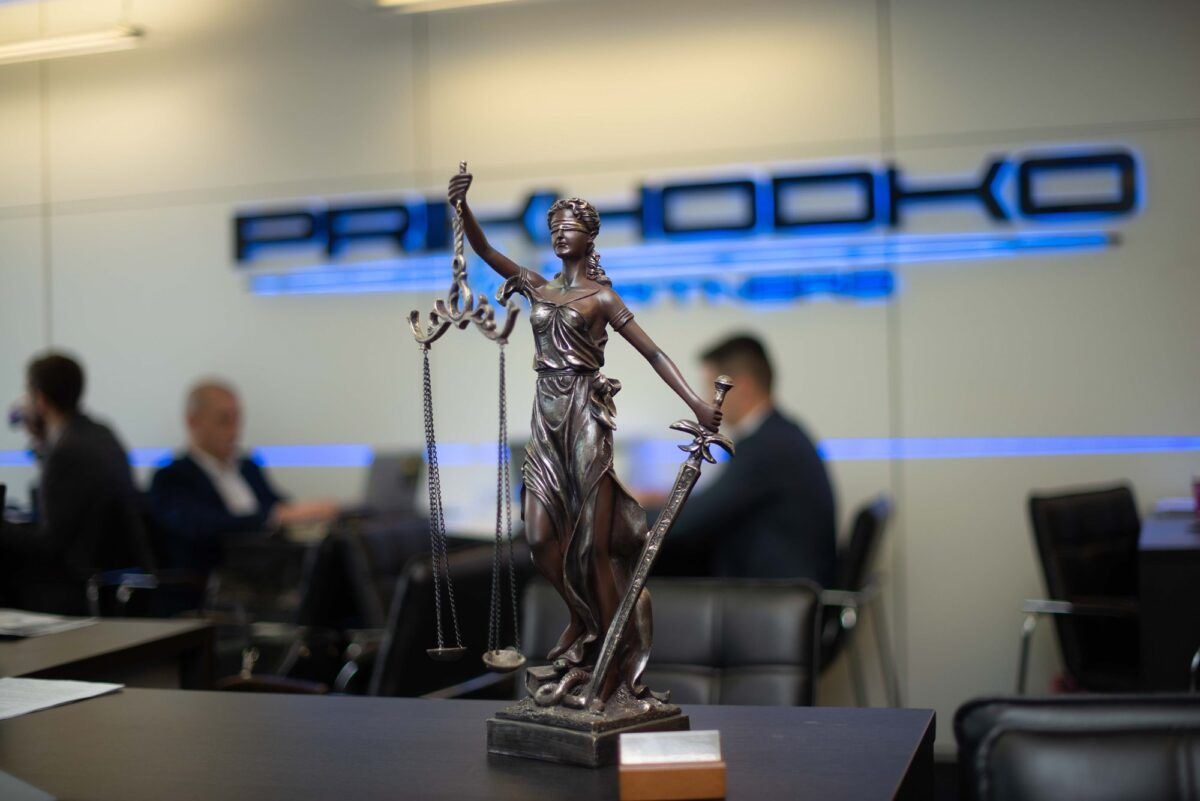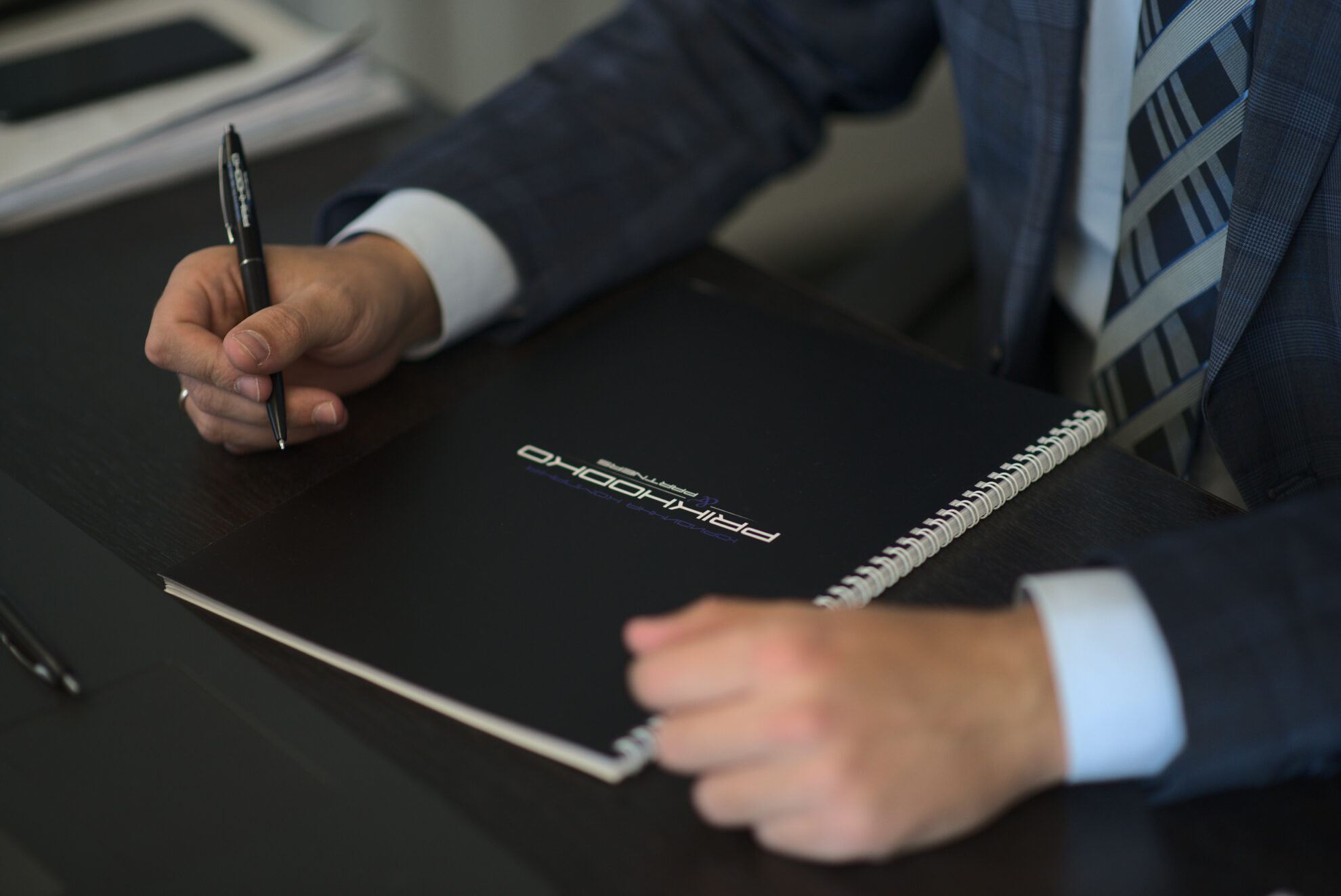
«We guarantee you high-quality and professional defense in criminal proceedings!»
Lawyer
Specializes in crimes in the military sphere, and is also an expert in criminal offenses against traffic safety and operation of transport
Strengthening of criminal responsibility for crimes against property (art. 185, 186, 187, 189, 191) in the conditions of martial law in Ukraine
With the declaration of martial law in Ukraine, there was a significant increase in criminal liability for crimes against property.
Chapter VI of the Criminal Code of Ukraine establishes criminal liability for property crimes. In particular, the legislator included theft, robbery, robbery, extortion, fraud, as well as other crimes, the object of which are certain values that do not belong to a person, to the list of such crimes.
However, currently, in the Ukrainian criminal legislation and society, a certain legal uncertainty has formed regarding the qualifying feature established by the majority of parts 4 (fourth) of the articles of this section.
Thus, after the treacherous invasion of the aggressor country on the territory of our country, the Ukrainian government and people were forced to regroup and respond to changes in modern realities. The appropriate response consisted not only in uniting the entire Ukrainian society to fight against an insolent enemy, but also in the adoption of appropriate legislative changes that allowed our country, economy and society as a whole to function in the conditions of a military conflict.
The first step towards legislative changes was the introduction of martial law on the territory of Ukraine, in accordance with the Presidential Decree of February 24, 2022, with subsequent (repeated) extensions.
The following changes affected in particular the strengthening of responsibility for crimes against property when on March 3, 2022, the Verkhovna Rada of Ukraine adopted Law No. 2117-IX. According to the specified law, part 4 (fourth) of articles 185-189 and 191 of the Criminal Code of Ukraine was supplemented with the qualifying feature "under conditions of martial law or state of emergency".
Thus, since the entry into force of the relevant legislative changes, liability for crimes against property, if the latter were committed under martial law, has been strengthened.
Thus, since the entry into force of the relevant law, responsibility for committing, in particular, theft under martial law is imprisonment for a term of 5 (five) to 8 (eight) years.
We would like to remind you that in accordance with the provisions of the current legislation, as of the date of the introduction of martial law on the territory of Ukraine and the entry into force of Law No. 2117-IX, criminal responsibility for committing theft began from the moment of causing damage to the victim in the amount of 248 (two hundred and forty-eight) hryvnias 01 (one ) a penny.
Currently (September 2023), the distinction between administrative and criminal offenses is 268 (two hundred and sixty-eight) hryvnias and 41 (forty-one) kopecks.
Thus, any secret theft of someone else's (natural or legal person) property in the amount of more than 268 (two hundred and sixty-eight) hryvnias and 41 (forty-one) kopecks under martial law is a criminal act. Liability for such a crime is established from 5 (five) to 8 (eight) years of real imprisonment.
In addition, the Criminal Code of Ukraine establishes the concept of an attempt (completed or not completed) to commit a certain crime.
Thus, at the moment, even an attempt to steal property, for example, from a store (shopping center), even if this attempt was stopped by the guards of such a store or not indifferent citizens, if the amount of the goods will be more than 268 (two hundred and sixty-eight) hryvnias 41 (forty one ) a penny, the person will face a real term of imprisonment from 5 to 8 years.

Will such a punishment be fair? The question is rhetorical and more ethical.
But it is more important in the aspect of this discussion to raise the topic of the legal uncertainty of the qualifier "committed under martial law".
Yes, every legislative initiative undoubtedly aims to improve the lives of our citizens, ensure compliance with their rights and freedoms, and also contribute to certain development. And when deciding on the adoption or non-adoption of any new legislative act, deputies of the Verkhovna Rada of Ukraine first familiarize themselves with the explanatory note to the corresponding legislative change.
Law No. 2117-IX is no exception, the explanatory note to it contains clear and logical justifications for the need to increase criminal liability for crimes against property.
If we analyze the relevant explanatory note, it can be argued that the legislator, proposing the relevant draft law for consideration, aimed to strengthen the criminal responsibility for "looting". That is, the actual purpose of the corresponding changes to the Criminal Code of Ukraine was to strengthen sanctions for committing crimes against property not directly on the battlefield (since such looting is criminalized by another article, Article 432 of the Criminal Code of Ukraine), but with the use of the features of martial law and the fact of conducting hostilities in one or another territory of our state.
That is, the legislators themselves, initiating the issue of making relevant changes to the Criminal Code of Ukraine, expected that their adoption would contribute to "the general prevention of looting and increasing the effectiveness of the means of criminal law response to manifestations of looting."
However, after the changes to the Criminal Code of Ukraine entered into force, a situation arose on the territory of our country, during which the qualifying feature of crimes against property "committed under martial law" is applied to all episodes of relevant offenses without exception.
For law enforcement agencies, neither the place nor the method is important, but the result of committing such a crime.
In fact, there are currently convictions for theft from a house (apartment) located in a zone of active hostilities, which was damaged by an enemy attack and abandoned by the owners, and for theft of goods from the shelves of a hypermarket in a city in which hostilities were not conducted at all, or hostilities in which it was stopped thanks to our defenders are the same - from 5 to 8 years of real imprisonment.
From a legal point of view, this interpretation of legislative changes by our law enforcement judicial system is erroneous, as it does not correspond to the purpose of adopting relevant changes to the Criminal Code of Ukraine, or to the Geneva Convention on the Protection of the Civilian Population in Time of War.

Ways of solving the mentioned problems in terms of the correct application of the qualifying features of Chapter VI of the Criminal Code of Ukraine.
In order to correctly apply the law on criminal liability, determine the correct qualification of a criminal offense, and achieve the goal of criminal proceedings, law enforcement agencies and representatives of the judicial branch of government must establish real qualifying features of the crime during the investigation of each criminal episode.
Thus, among the qualifying signs, in particular, but not exclusively, "theft", the legislator included the amount of damage caused to the victim, the presence of the fact of repetition or criminal conspiracy during the commission of the offense, the facts of breaking into a person's home or other property, and the actual presence of military personnel in Ukraine state
However, as was mentioned above, the legislator, during the discussion and subsequent adoption of changes to the Criminal Code of Ukraine in terms of the qualifying feature of "martial law", included in the secret theft of someone else's property (theft) the very fact of the use by a person who commits a criminal act of martial law, which was introduced on territory of Ukraine.
That is, in fact, in order to apply the qualifying feature "committed under martial law" to theft as a crime, law enforcement officers must establish and prove that when committing a criminal act, a person directly took advantage of "circumstances caused by martial law and/or military actions."
So, for example, the act of theft in the conditions of martial law will be the theft of property from the premises of a store, which was damaged as a result of enemy fire and therefore remained without permanent protection, which was used by a person for the purpose of seizing someone else's property. Or, for example, the illegal entry of a person into someone else's home, in the event that there are active hostilities on the territory of the relevant city/village/settlement, and the person has reason to believe that it is because of them that the property owners are temporarily not at their place of residence.
Thus, not any crime against property, which was committed during martial law on the territory of Ukraine, should be qualified under parts 4 (fourth) of the relevant articles of the Criminal Code of Ukraine. Such an interpretation of the sign "under martial law" leads to the fact that any theft is considered a serious crime, and this distorts its very concept.
In the event that the commission of such criminal acts was in no way related to the state of war and its consequences in a specific area, and/or the fact of hostilities in this area. The qualification of the relevant act must be carried out in view of the amount of damage caused and the presence of other qualifying features.
In addition, the assignment of a certain region/district/population to one in which hostilities are currently taking place must be carried out on the basis of the relevant decision of the Ministry of Defense. The presence of such a decision eliminates the existing legislative inconsistency regarding the interpretation of crimes against property committed in wartime.
Therefore, with the aim of uniform application of the law on criminal liability in the context of committing crimes against property during wartime actions on the territory of Ukraine, legislators in general, and representatives of law enforcement agencies and the judicial branch of government in particular must take the following sequential steps:
- Enshrine in the Criminal Code of Ukraine the definition of the concept of "looting" in terms of committing the corresponding crime by military or civilian persons in places that are not the immediate battlefield. It would be appropriate to add the definition of the specified term to the footnote of Art. 185 of the Criminal Code of Ukraine, which already currently contains other explanations of the qualifying features of crimes against property. The legislative regulation of this concept will make it possible to avoid the fact that the punishments are not proportional to the crimes that were committed, and the double application by the courts of the aggravating circumstance of "commitment during martial law".
- Make changes to the current legislation of Ukraine, by which to clearly define the procedure and methods of assigning certain territories of Ukraine to the zones of active hostilities, territories in which hostilities are being conducted, territories adjacent to hostilities zones. Legislative regulation of the specified categories and a clear procedure for assigning territories to the appropriate categories will enable law enforcement officers during pre-trial investigation in criminal proceedings on crimes against property to establish the presence/absence of the qualifying feature "commitment of a crime during martial law".
- The Ministry of Defense of Ukraine, taking into account the situation on the front line and the demarcation, regularly (taking into account the changes) issue decisions/decrees/orders on the assignment of certain territories of Ukraine to the corresponding categories of combat zones.
- Law enforcement agencies, during the pre-trial investigation, establish the direct facts of the commission of a crime against property using the circumstances of wartime and/or the consequences caused by the state of war and direct hostilities. During the qualification of a criminal offense, in the absence of such circumstances, it would be appropriate to use non-qualifying features established by parts 4 (fourth) of the relevant articles, in the corresponding aggravating circumstances established by Article 67 of the Criminal Code of Ukraine.
- Courts, when passing judgments on cases of crimes against property, must establish the proven fact of a person's use of wartime circumstances to commit a crime, and avoid violating the principle of individuality of punishment, as well as the parallel application of aggravating circumstances and qualifying features of a crime against property.
Thus, the introduction of only a few legislative changes will allow to avoid significant violations of fundamental human rights, to cancel the facts of the judicial equating of crimes of different severity to each other, since currently, in accordance with the sanctions of the articles, thefts in the amount of more than 268 (two hundred and sixty-eight) hryvnias 41 ( forty-one) kopecks, the specified crime is equal in severity to sexual violence committed by a group of persons against a minor, kidnapping and torture, recruiting and moving a person committed for the purpose of exploitation and other serious crimes provided for in the main part of the Criminal Code of Ukraine.
Calculate the price of assistance:
1 question
Have other lawyers handled your case?
2 question
Are you in Kyiv or Kyiv region?
3 question
Do you need legal assistance urgently?
Lawyer
Specializes in crimes in the military sphere, and is also an expert in criminal offenses against traffic safety and operation of transport
Other articles on this topic:
call back
during the day




